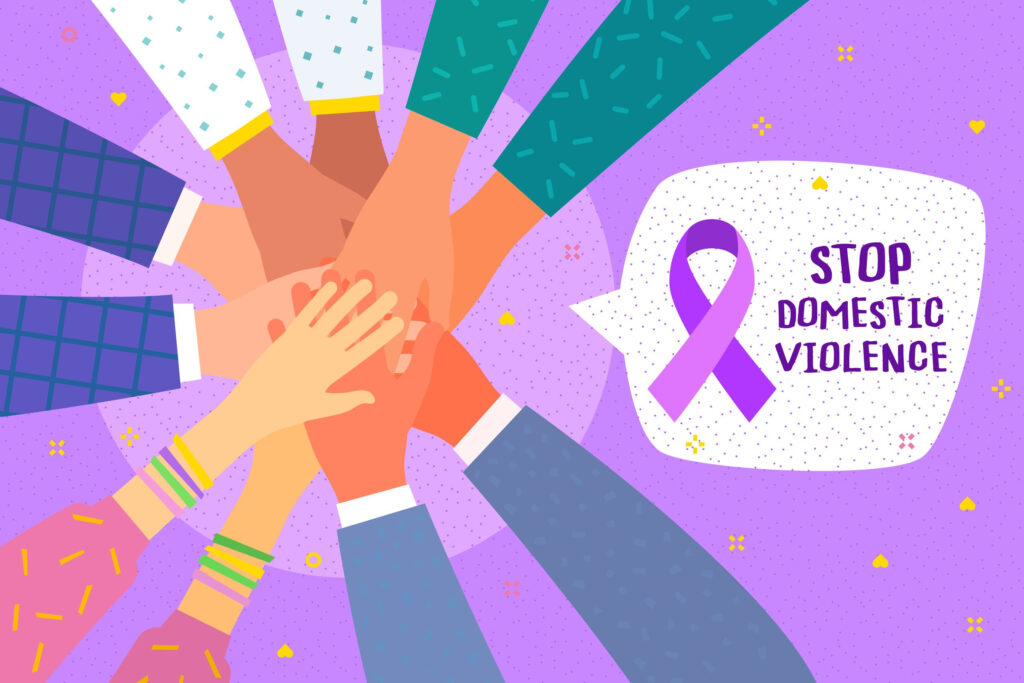In January of 1991 the state of Massachusetts expanded the restraining order law, 209A, to allow people in dating relationships to take out Stop Abuse, and Stay Away Orders.

What are the signs of trouble?
Strange behavior on the part of the abused is common.
Unexplained bruises, cuts and other injuries are warning signs of dating violence.
If bruises on arms or legs appear and are noticed, the victim may offer excuses or try to change the subject.
Skipping school, abusing drugs and alcohol, or the withdrawal from friends and fun times because of fear of a boyfriend/girlfriend´s anger could also be indications.
Difficulty with making decisions or is afraid of one’s boyfriend/girlfriend.
Why do teens stay in abusive relationships?
Many teens stay because they are involved in their first romantic and sometimes intimate relationship. They believe they would have failed if the relationship didn´t last long.
Some teens have a sense of inferiority when they are not involved in a dating relationship and will do almost anything to keep one. A sense of importance, self worth and belonging is derived from being in a relationship.
What causes the problem of abuse?
Experts have determined many factors contribute to abuse, such as;
- drugs and alcohol
- legacy of violent families
- male insecurity in the face of the changing female role in society
- the numbing glorification of anti-female themes in popular music and film.
What are the different forms of abuse?
It is important to increase your awareness of the different forms of abuse and learn the warning signs that signal a relationship is both unhealthy and dangerous.
Violence is often the outcome of a continued pattern of unacceptable behaviors.
The forms of abuse include:
- emotional – not allowing you to make your own decision; not letting you see friends and family
- sexual – forcing you to do things that make you uncomfortable; suggesting you have sex with friends
- verbal – name calling; overtalking you; put downs; embarrassing remarks
- physical – threats; physical assault; getting “in your face”
What are some warning signs for teens?
Some ways to determine if your relationship is going down the wrong track are:
- jealousy – Accuses you of playing up to other boys/girls; gets in fights with others that he/she considers a threat
- possessiveness – Insists you cannot see friends; talk to other boys/girls; go anywhere without him/her
- controlling – Tells you what to wear; how to speak and act; gets angry when you disagree
- power – Has a pattern of involvement with younger partners; pressures you sexually
How does a victim think in an abusive relationship?
The Relationship begins:
- The victim, believing jealousy is love, is flattered by the abuser´s behavior
- The victim begins to readjust behavior to try not to “set him/her off”
- The victim starts feeling lonely, stops seeing friends and family
- The fear increases
- The abuser has a violent episode
- The victim feels he/she still loves the abuser and believes the abuser will change and become a better person
- The victim´s self esteem decreases as the control and manipulation of the abuser increases
Men/Women who batter their partner will often tell them how much they love them, and promise never to hurt them again.
What can you do to help?
Support the teen’s courage and ask lots of questions to show you care.
In a gentle way, help the teen to recognize the excuses the abuser makes for his/her behavior.
Help the teen find counseling through a domestic violence resource center.
If your friend or child won´t listen to your suggestions, don´t get angry or give up, the teen may need you. For additional assistance, please reach out to the following resources:
- NATIONAL DOMESTIC VIOLENCE HOTLINE
1-800-799-SAFE (7233) - NATIONAL SEXUAL ASSAULT HOTLINE
1-800-656-HOPE (4673) - SAFELINK- 24/7 DOMESTIC VIOLENCE HOTLINE
1-877-785-2020 - SOUTH SHORE RESOURCE AND ADVOCACY CENTER
508-746-2664 - WOMAN’S PLACE CRISIS CENTER
509-588-2041 - A NEW DAY
508-588-2045 - FAMILY & COMMUNITY RESOURCE CENTER
508-583-6498
If you are in an abusive relationship:
- Believe in yourself and remember that no one deserves abuse.
- Confide in a trusted friend, parent, teacher or counselor.
- Call a battered women´s program for help.
- Create a SAFETY PLAN with the help of a SAFEPLAN advocate.
- Get out of your relationship as soon as you have a plan that allows you to leave safely.
